Coins Worksheets for Ages 3-6
13 filtered results
-
From - To
Discover engaging and educational coins worksheets designed specifically for children ages 3-6! Our collection introduces young learners to essential money concepts through fun, interactive activities. From identifying different coins to counting and solving simple math problems, these worksheets help children develop their numeracy skills while fostering a foundational understanding of currency. Each worksheet is visually appealing and age-appropriate, ensuring that learning about coins is enjoyable and effective. Whether at home or in the classroom, these resources are perfect for enhancing early math proficiency. Explore our coins worksheets today to make learning about money an exciting adventure for your little ones!
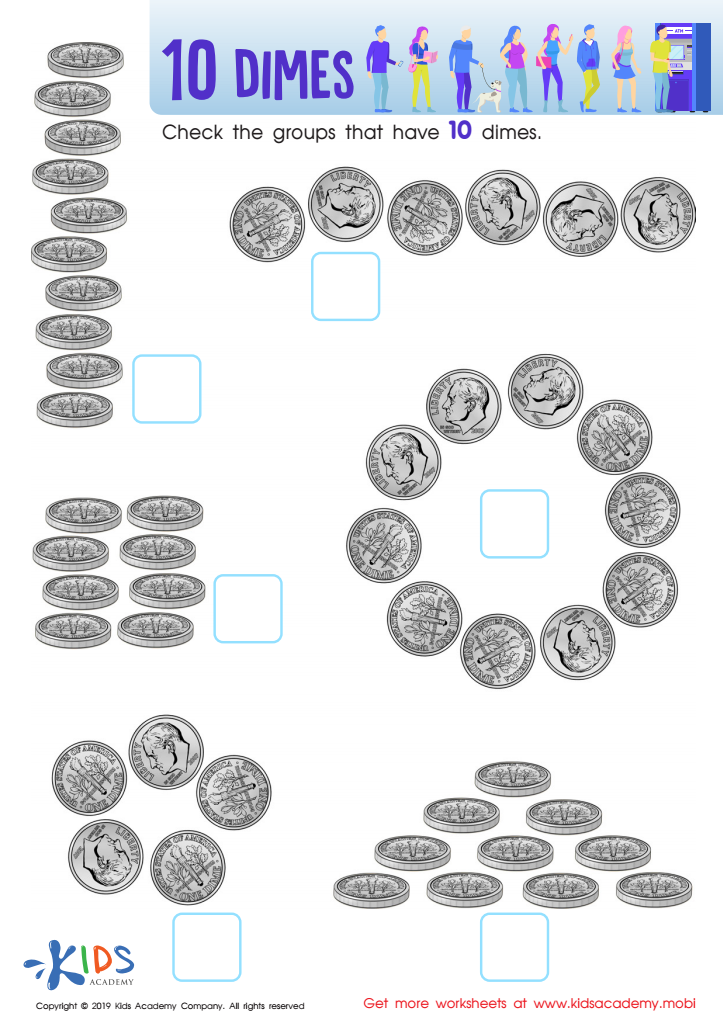

10 Dimes Worksheet
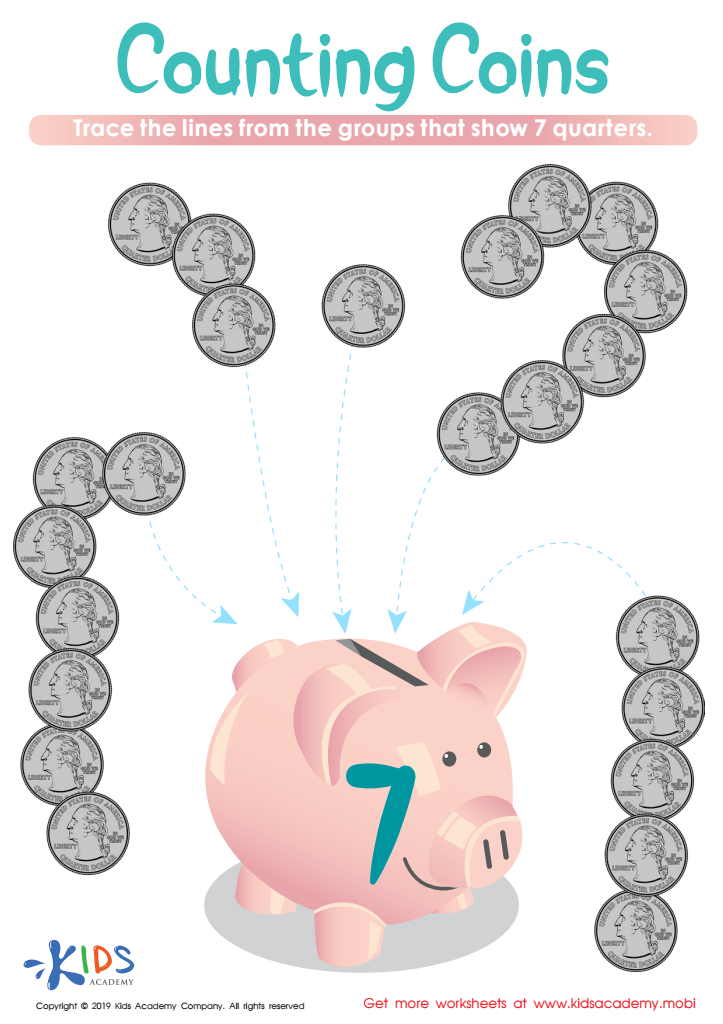

Counting Coins Worksheet
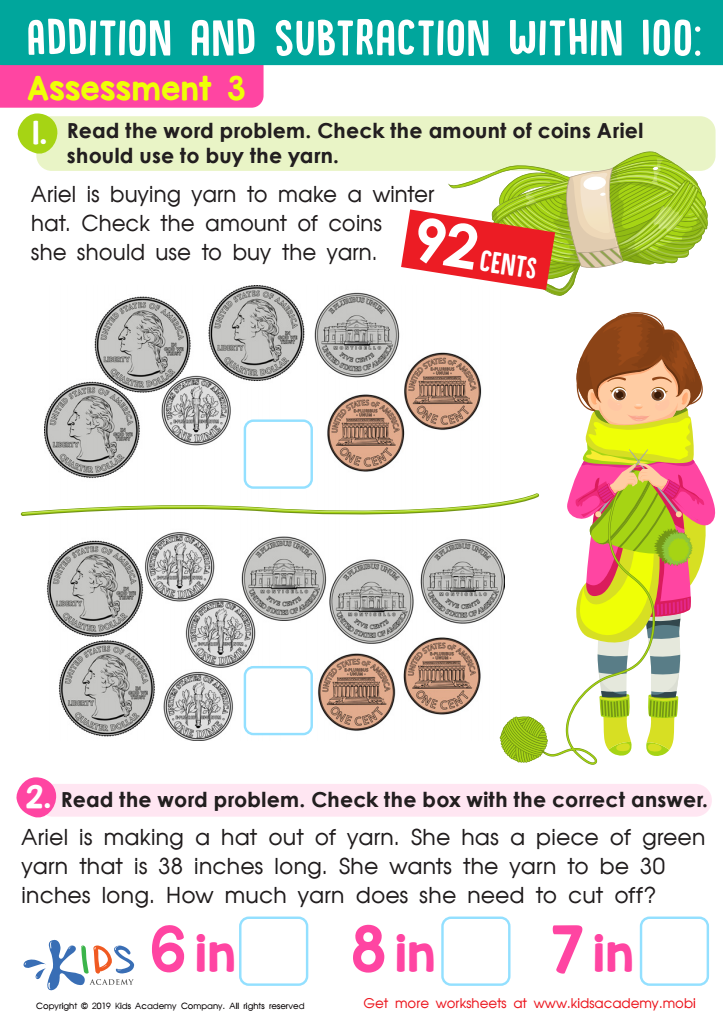

Assessment 3 Math Worksheet
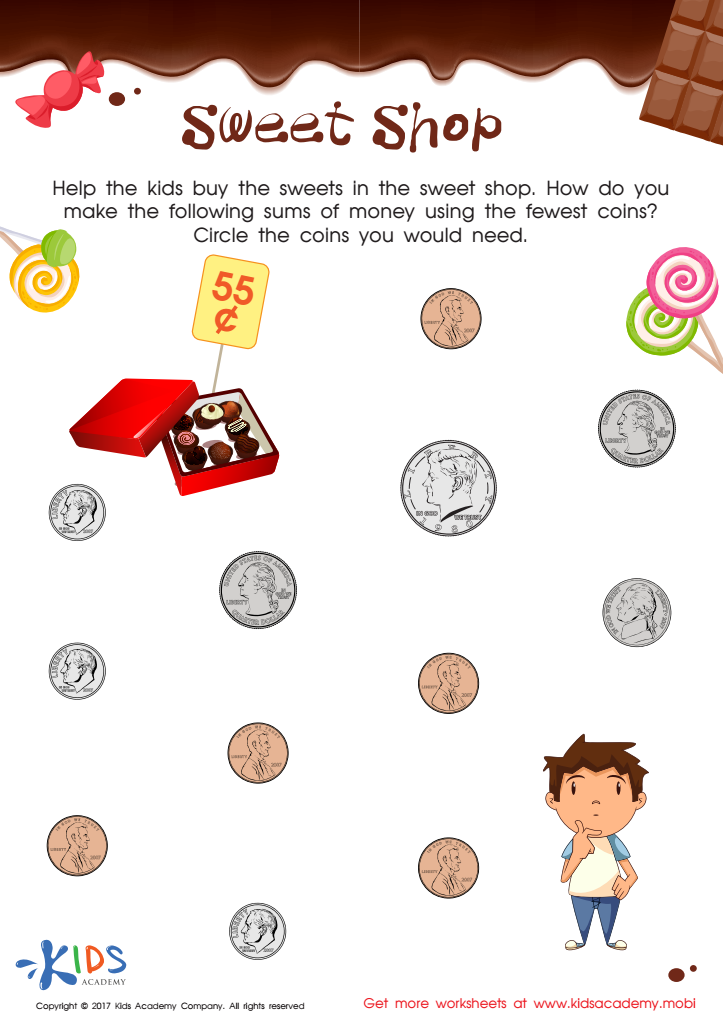

Sweet Shop – Counting Coins Worksheet
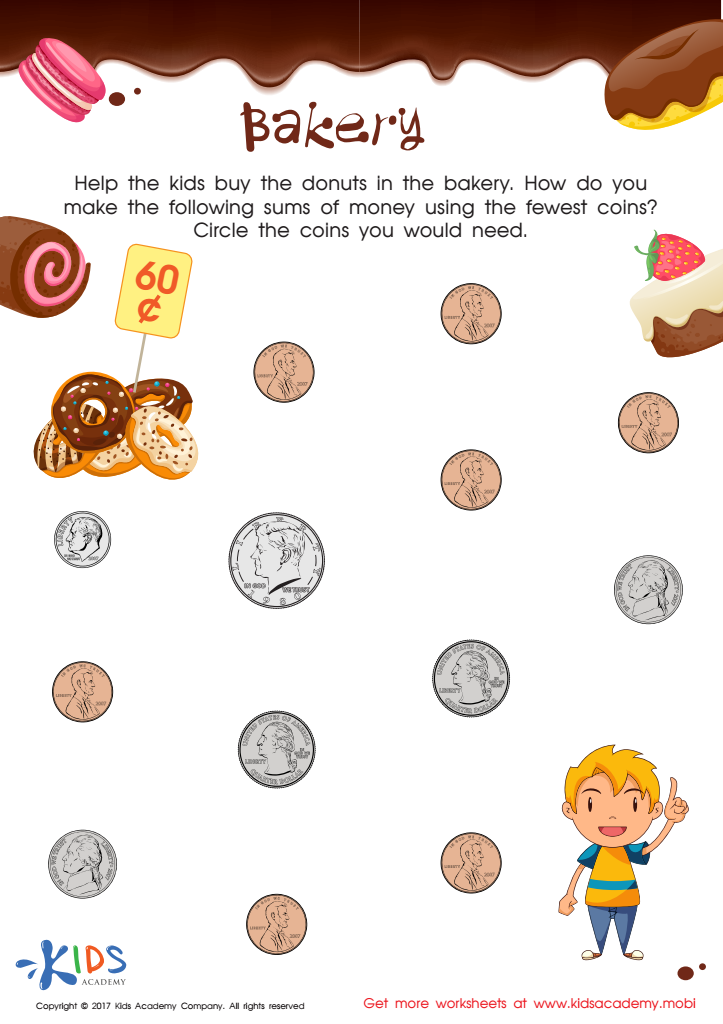

Counting Coins Worksheet
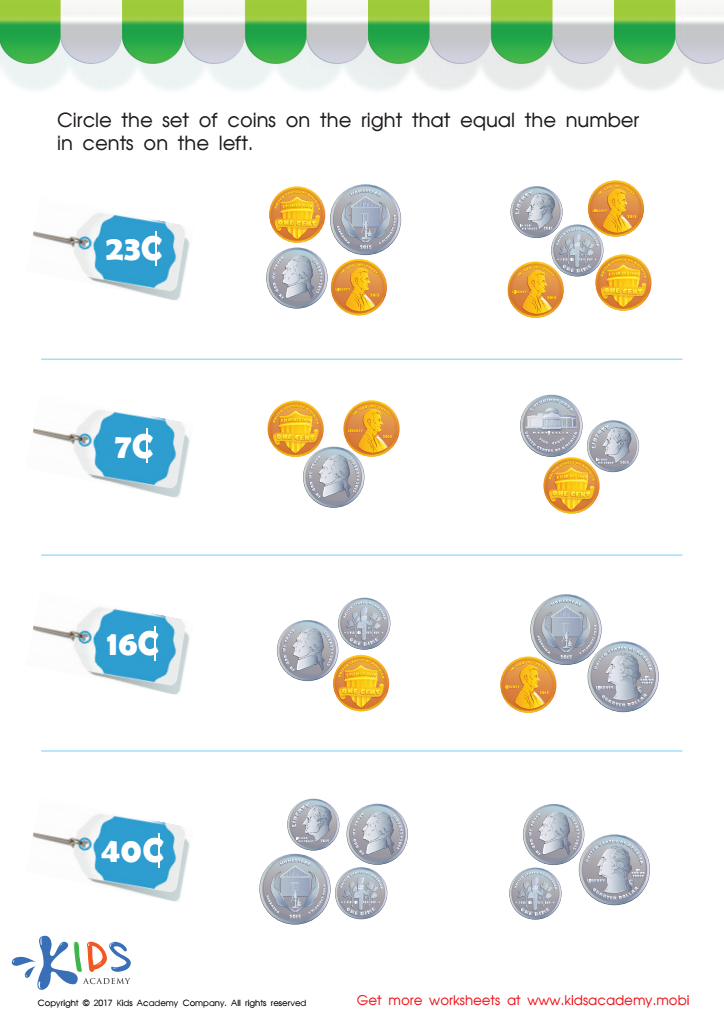

Picking the Coins You Need Money Worksheet
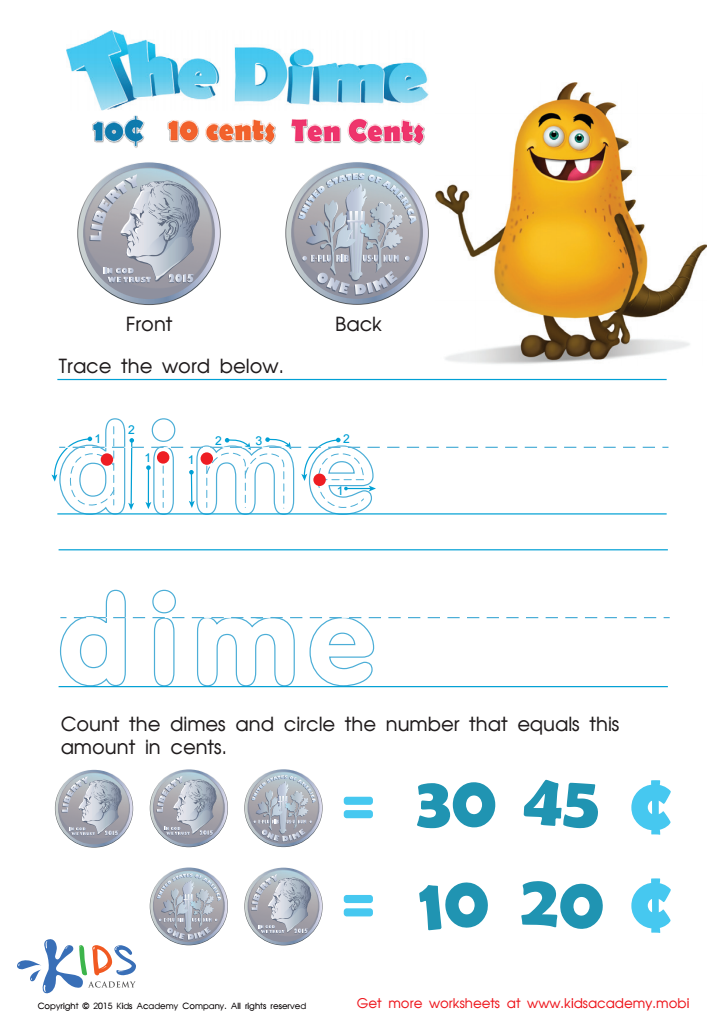

Ten Cents or the Dime Money Worksheet
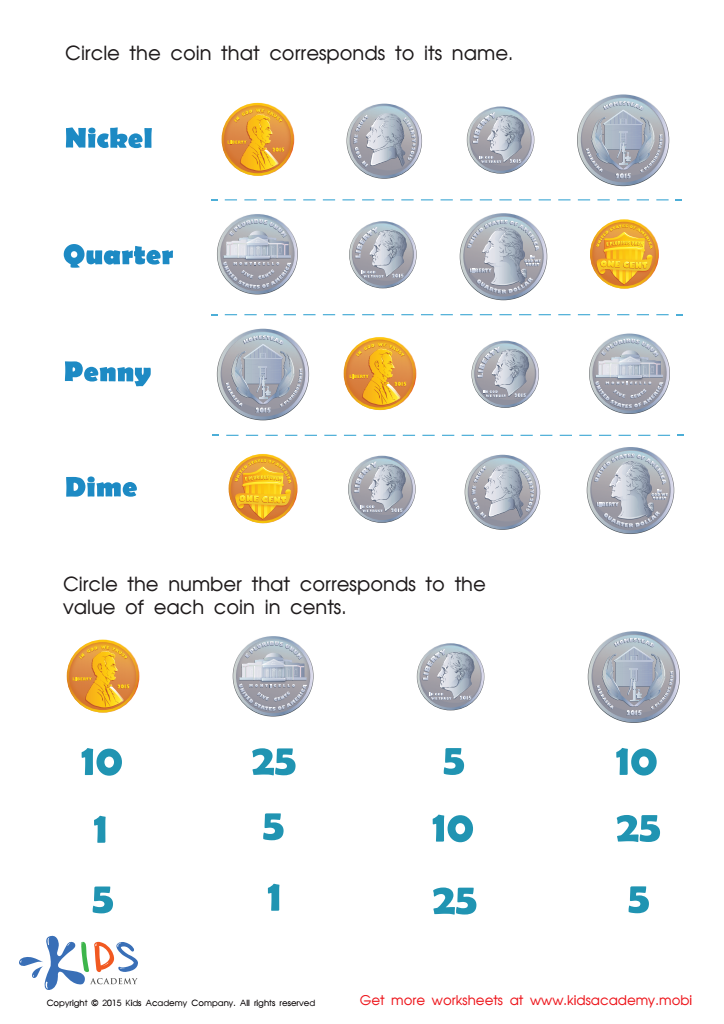

Coin Names and Values Money Worksheet
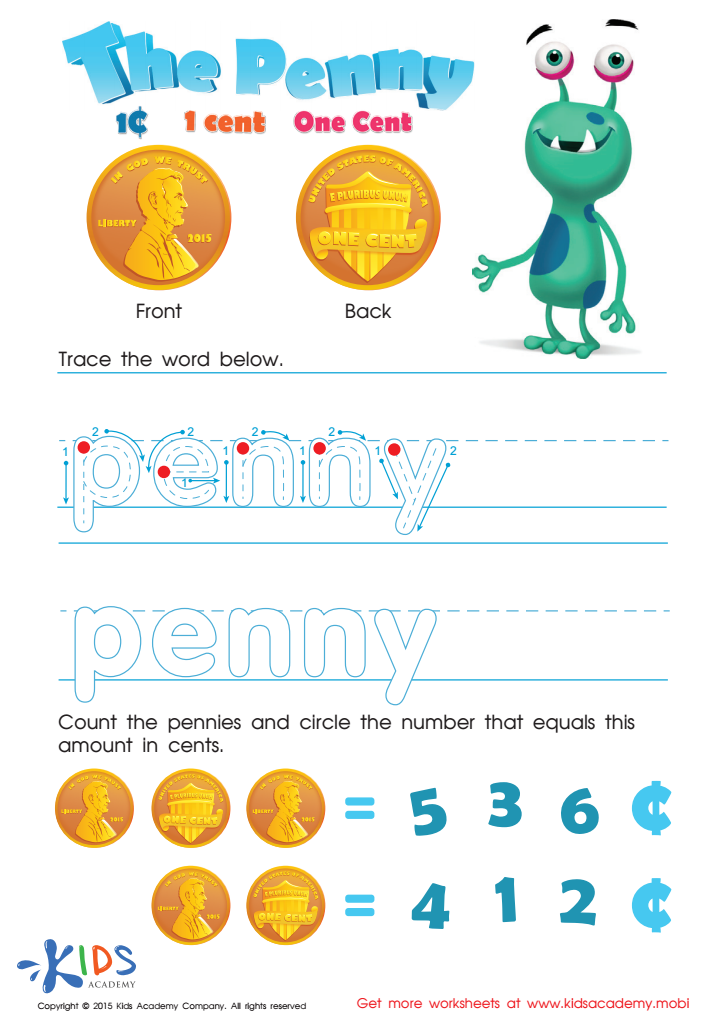

One Cent or the Penny Money Worksheet
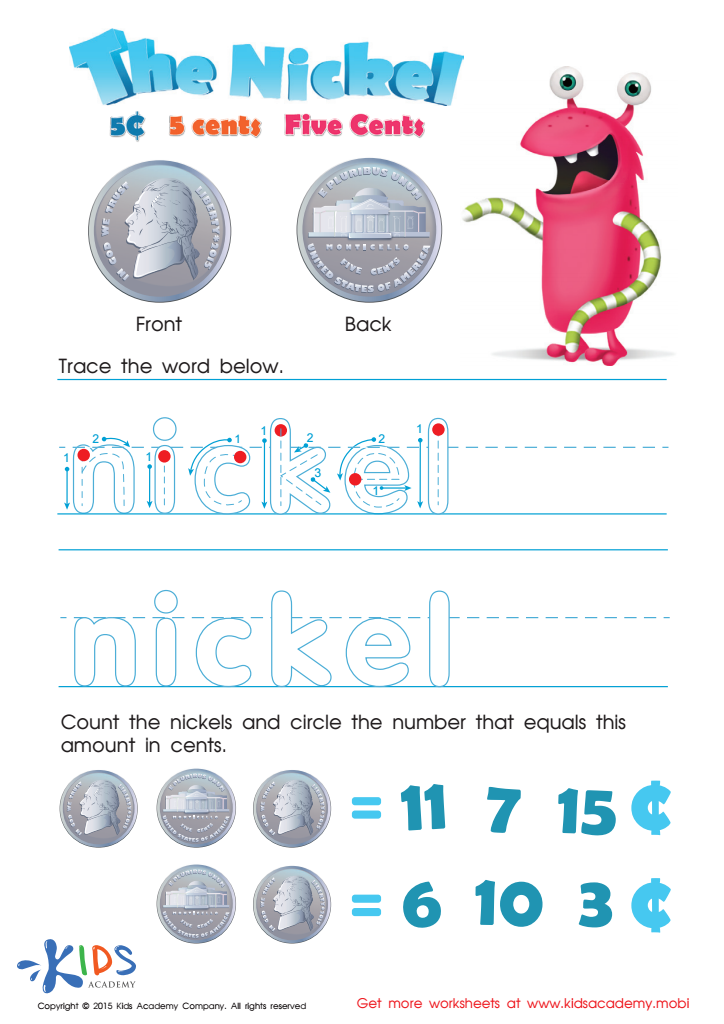

Five Cents or the Nickel Money Worksheet
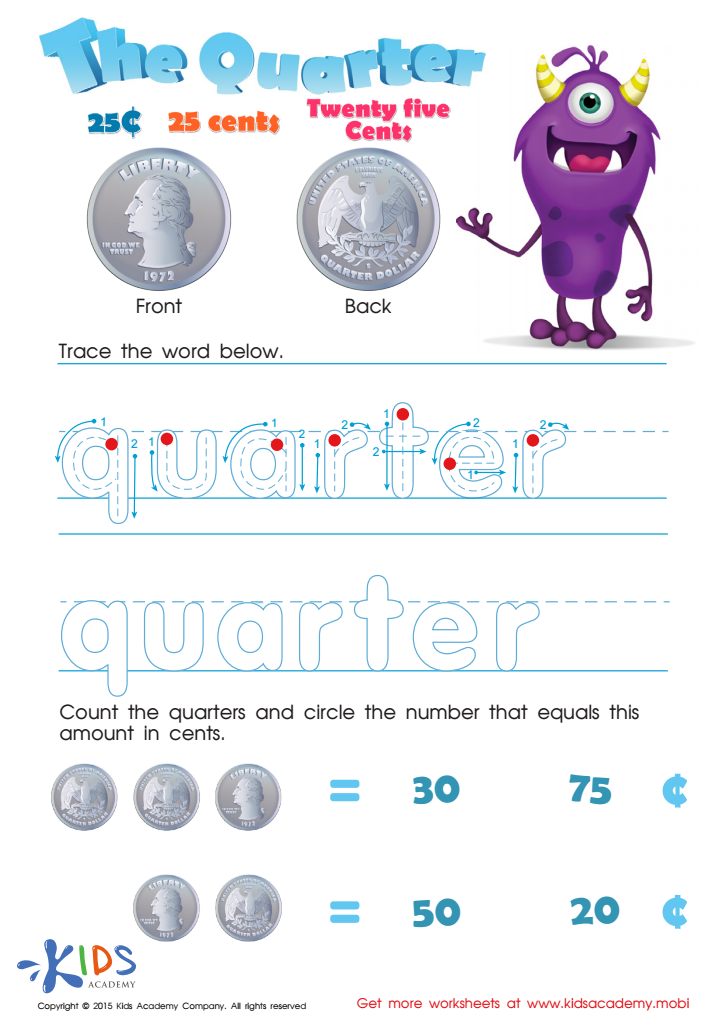

Twenty Five Cents or the Quarter Money Worksheet
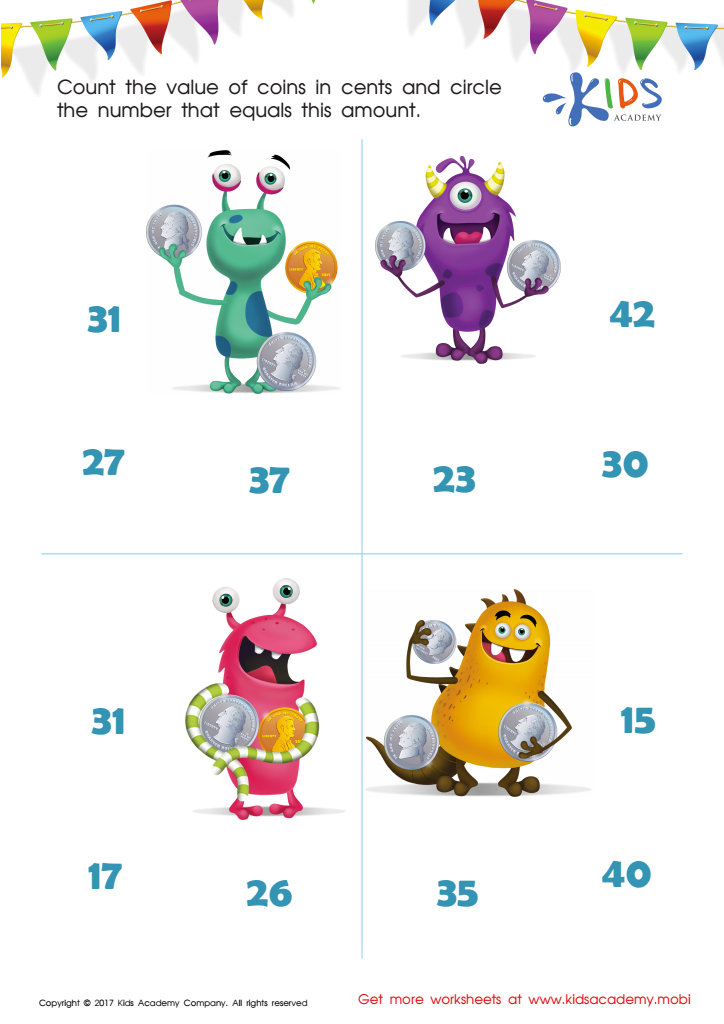

How Many Coins Money Worksheet
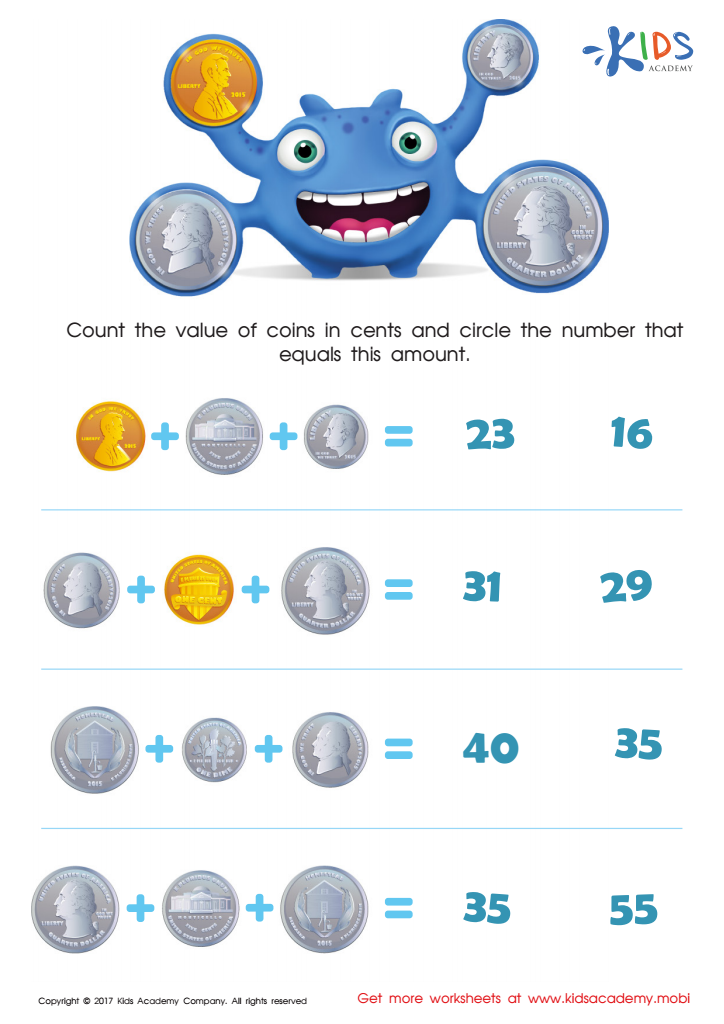

Counting the Coins Money Worksheet
Coins for Ages 3-6 represents an essential educational tool that can foster early cognitive development in young children. Learning about coins introduces foundational concepts of mathematics, such as counting, value, and basic addition and subtraction. Through hands-on activities involving coins, children can visually and practically engage with numerical concepts, making abstract math relatable and enjoyable.
Additionally, understanding money and its value lays the groundwork for financial literacy. Teaching children about coins helps them recognize the importance of saving, making change, and budgeting—skills that will serve them well throughout life. Engaging in play with coins, like sorting, stacking, or role-playing as shopkeepers, also promotes fine motor skills, critical thinking, and problem-solving abilities.
Moreover, discussions about money can facilitate valuable conversations about life skills, responsibility, and sharing. These interactions within a classroom or home setting encourage social interaction and communication, helping develop emotional intelligence.
Ultimately, parents and teachers should care about incorporating coin-related activities into learning because they underpin essential life skills while making mathematics engaging and accessible for young learners. Investing in these early experiences sets a solid foundation for future educational success.

 Assign to My Students
Assign to My Students





















